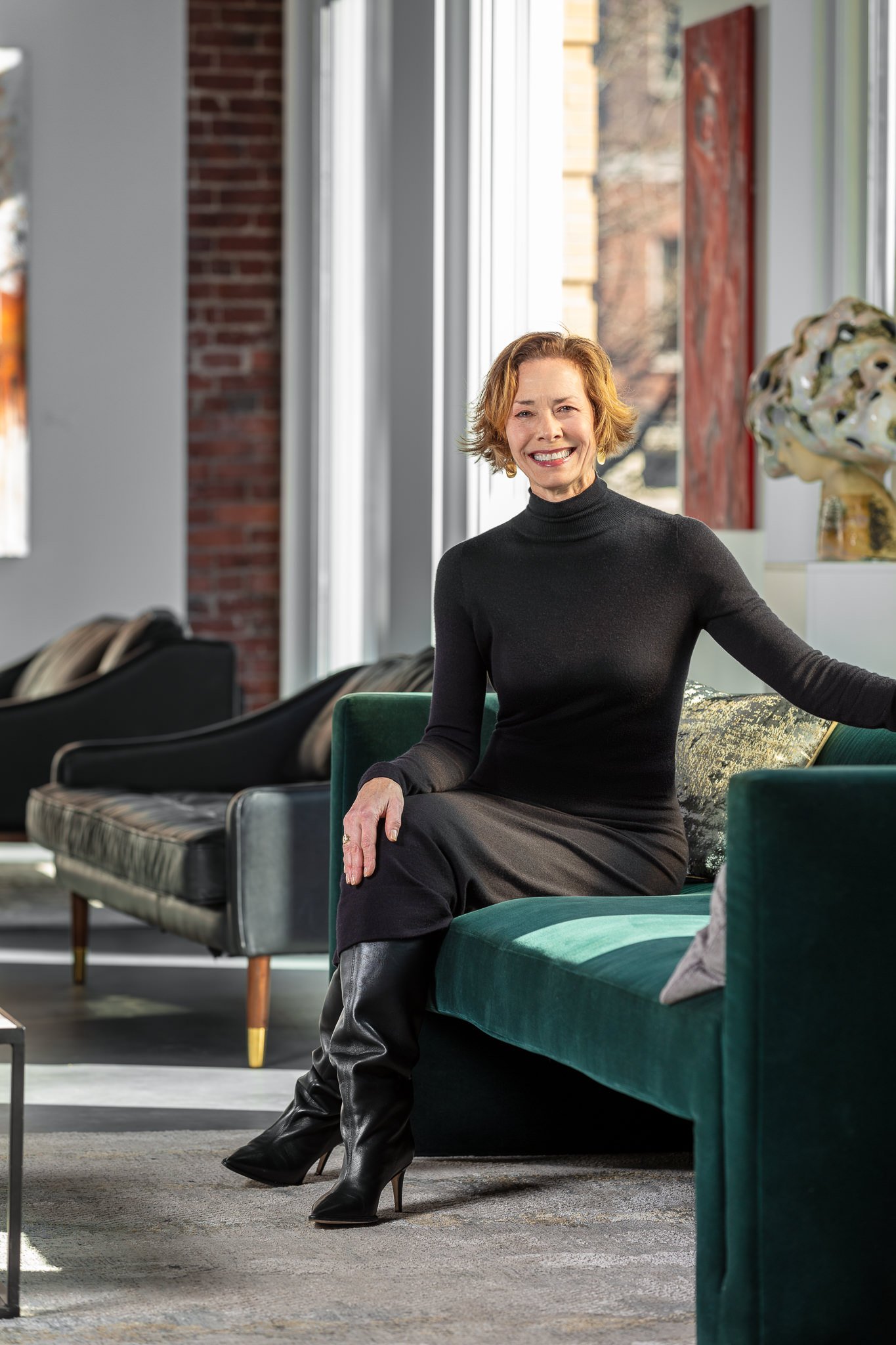10 Essential Tips for Choosing the Right Commercial Photographer for Your Brand
In today's visually-driven market, high-quality photographs are crucial for making a lasting impression. Whether you're a startup or an established brand, selecting the right commercial photographer can elevate your visual storytelling and align with your brand's vision. With countless options available, it can feel overwhelming to make the right choice. This guide simplifies the search process with 10 essential tips to help you navigate the landscape of commercial photography. From understanding your brand's unique aesthetic to ensuring the photographer's style resonates with your goals, these insights will empower you to find a photography partner that not only captures your products but also your brand's essence. Get ready to transform your visuals and take your brand to new heights!
Understanding the Role of a Commercial Photographer
To begin the journey of selecting the right commercial photographer, it's crucial to understand their role within the context of your brand. A commercial photographer is not merely someone who takes pictures; they are visual storytellers who can capture the essence of your brand through their lens. Their work goes beyond snapping shots; it involves conceptualizing, planning, and executing a vision that aligns with your brand’s identity. This means that they are responsible for creating images that resonate with your target audience, evoke emotions, and drive engagement.
A commercial photographer should possess a keen understanding of marketing principles and the power of imagery in brand communication. They need to be able to translate the unique selling points of your products or services into compelling visual content. This requires not only technical expertise but also a creative flair and an intuitive grasp of your brand’s core values and messaging. They should be adept at working within various industries and styles, adapting their approach to suit the specific needs of each project.
Furthermore, a commercial photographer often collaborates closely with other team members such as marketing managers, art directors, and graphic designers. Their ability to work harmoniously within a team setting is vital for ensuring that the visual content they produce is cohesive and aligned with the broader marketing strategy. By understanding the integral role a commercial photographer plays, you can better appreciate the importance of selecting the right professional for your brand.
Identifying Your Brand's Photography Needs
Before diving into the search for a commercial photographer, it’s essential to clearly identify your brand's photography needs. This involves taking a step back and assessing what kind of visual content will best represent your brand’s identity and appeal to your target audience. Start by defining your brand's aesthetic—are you looking for something sleek and modern, or perhaps more rustic and organic? Understanding your brand’s visual style will guide you in finding a photographer whose work aligns with your vision.
Consider the specific types of photography your brand requires. Do you need product shots, lifestyle imagery, corporate headshots, or event coverage? Each of these categories demands a different skill set and approach. By narrowing down the type of photography you need, you can focus your search on photographers who specialize in those areas. Additionally, think about the intended use of the photos—will they be used for your website, social media, print materials, or advertising campaigns? The intended medium can influence the style and technical requirements of the photographs.
It’s also important to consider the frequency and volume of photography needed. Are you looking for a one-time project or ongoing collaboration? Understanding the scope of your needs will help you determine whether you need a photographer for a single shoot or as a long-term partner. By clearly identifying your brand’s photography needs, you can create a focused and efficient plan for finding the right commercial photographer.
Researching Potential Photographers
Once you have a clear understanding of your brand's photography needs, the next step is to start researching potential photographers. Begin by conducting a thorough online search to discover photographers in your area or those who specialize in the type of photography you require. Use search engines, social media platforms, and professional directories to gather a list of potential candidates. Pay attention to their online presence, as it often reflects their professionalism and commitment to their craft.
In addition to searching online, seek recommendations from colleagues, industry peers, or other businesses whose photography you admire. Word-of-mouth referrals can provide valuable insights and help you identify photographers with a proven track record. Attend industry events, trade shows, and photography exhibitions to network with photographers and see their work firsthand. This can give you a better sense of their style and capabilities.
As you compile your list of potential photographers, take the time to visit their websites and social media profiles. Look for comprehensive portfolios that showcase a range of work, as well as client testimonials that speak to their experience and reliability. Make note of photographers whose work resonates with you and aligns with your brand’s aesthetic. By conducting thorough research, you can create a shortlist of photographers who are well-suited to meet your brand’s photography needs.
Evaluating Portfolios: What to Look For
Evaluating a photographer's portfolio is a critical step in the selection process, as it provides insight into their style, skill level, and creative vision. When reviewing portfolios, look for consistency in quality and style. A strong portfolio should demonstrate the photographer's ability to produce high-quality images that are well-composed, properly lit, and visually engaging. Pay attention to the technical aspects of their work, such as focus, exposure, and color accuracy, as these are indicators of their technical proficiency.
Consider how well the photographer's style aligns with your brand's aesthetic. Do their images evoke the emotions and narrative you want to convey? Look for versatility in their portfolio—can they adapt their style to different subjects and settings? A versatile photographer will be better equipped to handle a variety of projects and deliver images that meet your specific needs. Additionally, examine the creativity and originality of their work. Are their images unique and thought-provoking, or do they feel generic and formulaic?
Another important aspect to consider is the photographer's experience with similar projects. Look for examples of work that are relevant to your industry or the type of photography you need. For instance, if you require product photography, look for portfolios that showcase a strong body of work in that area. If you need lifestyle imagery, seek out photographers who excel in capturing authentic moments and emotions. By carefully evaluating portfolios, you can identify photographers who have the skills and vision to bring your brand's visual story to life.
Checking Reviews and Testimonials
In addition to evaluating portfolios, it's important to check reviews and testimonials from previous clients. These can provide valuable insights into the photographer's professionalism, reliability, and ability to deliver results. Look for reviews on their website, social media profiles, and third-party review platforms. Pay attention to both positive and negative feedback to get a well-rounded view of their strengths and areas for improvement.
When reading reviews, consider the context and specifics of each client's experience. Look for patterns in the feedback—are there consistent themes that emerge, such as excellent communication, timely delivery, or high-quality results? Conversely, be wary of recurring complaints, such as missed deadlines, lack of professionalism, or poor communication. These red flags can indicate potential issues that may arise during your collaboration.
It's also helpful to reach out directly to previous clients for more detailed feedback. If possible, ask the photographer for references and contact them to discuss their experience working with the photographer. This can provide a more in-depth understanding of what to expect and help you gauge whether the photographer is a good fit for your brand. By thoroughly checking reviews and testimonials, you can gain confidence in your choice and ensure that you select a photographer with a solid reputation and track record.
Understanding Pricing and Budget Considerations
Understanding pricing and budget considerations is a crucial aspect of selecting the right commercial photographer. Photography services can vary widely in cost, depending on factors such as the photographer's experience, the complexity of the project, and the scope of work. Before reaching out to potential photographers, establish a clear budget for your photography needs. Consider the value that high-quality photography will bring to your brand and allocate funds accordingly.
When discussing pricing with photographers, ask for detailed quotes that outline the costs associated with your project. This should include fees for the photographer's time, equipment, post-processing, and any additional services such as styling or location scouting. Be sure to clarify what is included in the quote and whether there are any potential additional costs. Understanding the full scope of the pricing will help you avoid unexpected expenses and make an informed decision.
It's also important to consider the return on investment (ROI) that professional photography can provide. High-quality images can enhance your brand's image, attract new customers, and drive sales. While it may be tempting to opt for the cheapest option, investing in a skilled and experienced photographer can yield significant long-term benefits. By carefully considering pricing and budget, you can find a photographer who offers the best value for your investment while meeting your brand's needs.
The Importance of Communication and Collaboration
Effective communication and collaboration are key to a successful partnership with a commercial photographer. From the initial consultation to the final delivery of images, clear and open communication ensures that both parties are on the same page and working towards a common goal. When evaluating potential photographers, pay attention to their responsiveness and willingness to engage in meaningful conversations about your project.
A good photographer should take the time to understand your brand's vision, goals, and target audience. They should ask questions and seek clarification to ensure they fully grasp the scope and objectives of the project. This collaborative approach helps build trust and fosters a productive working relationship. Additionally, a photographer who values communication will be more likely to provide updates, address concerns, and make adjustments as needed throughout the process.
It's also important to establish clear expectations and guidelines from the outset. Discuss timelines, deliverables, and any specific requirements or preferences you have for the shoot. By setting clear parameters and maintaining open lines of communication, you can minimize misunderstandings and ensure that the final images align with your brand's vision. Effective communication and collaboration are essential for a successful partnership and the creation of compelling visual content.
Assessing Technical Skills and Equipment
Technical skills and equipment play a significant role in the quality of the final images. When evaluating potential photographers, consider their technical proficiency and the tools they use to capture and produce images. A skilled photographer should have a strong understanding of lighting, composition, and camera settings, as well as the ability to adapt to different shooting conditions and environments.
In addition to technical skills, the quality and condition of the photographer's equipment are important factors to consider. Professional-grade cameras, lenses, and lighting equipment can significantly impact the clarity, sharpness, and overall quality of the images. Ask potential photographers about the equipment they use and their familiarity with the latest technology and techniques. This can give you confidence in their ability to deliver high-quality results.
Moreover, post-processing is an essential aspect of modern photography. A photographer's proficiency in editing software such as Adobe Photoshop or Lightroom can enhance the final images and ensure they meet your brand's standards. Inquire about their editing process and request examples of before-and-after images to assess their retouching skills. By evaluating technical skills and equipment, you can select a photographer who has the expertise and tools necessary to produce exceptional visual content for your brand.
Scheduling a Consultation: Key Questions to Ask
Scheduling a consultation with potential photographers is a valuable opportunity to discuss your project in detail and assess their suitability for your brand. Prepare a list of key questions to ask during the consultation to gain a deeper understanding of their approach, experience, and capabilities. Start by discussing their experience with similar projects and their familiarity with your industry. This can provide insights into their ability to understand and meet your specific needs.
Ask about their creative process and how they approach concept development, planning, and execution. Inquire about their workflow and how they handle challenges or unexpected changes during a shoot. This can give you an idea of their problem-solving skills and adaptability. Additionally, discuss their availability and scheduling to ensure they can accommodate your project timeline and meet deadlines.
It's also important to ask about their communication style and preferred methods of staying in touch throughout the project. Effective communication is crucial for ensuring that the final images align with your vision. Finally, discuss the terms of the contract, including payment schedules, usage rights, and any potential revisions or reshoots. By asking these key questions, you can gather the information you need to make an informed decision and select a photographer who is the right fit for your brand.
Making the Final Decision: Trust Your Instincts
After conducting thorough research, evaluating portfolios, checking reviews, and scheduling consultations, it's time to make the final decision. While all the factors discussed are important, it's also essential to trust your instincts. Your intuition can often guide you in selecting a photographer who feels like the right fit for your brand. Consider how comfortable and confident you felt during the consultation and whether the photographer demonstrated a genuine interest in your project.
Reflect on the overall impression you have of each photographer, including their professionalism, creativity, and communication skills. Think about how well their style aligns with your brand's aesthetic and whether you believe they can capture the essence of your brand. Trusting your instincts can help you make a decision that feels right and aligns with your vision.
Ultimately, selecting the right commercial photographer is about finding a partner who can bring your brand's visual story to life. By following these essential tips and trusting your instincts, you can confidently choose a photographer who will elevate your brand's imagery and help you make a lasting impression in a visually-driven market. With the right photographer by your side, you can transform your visuals and take your brand to new heights.









